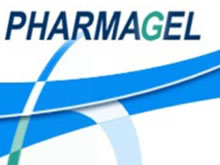
Dictionary of Allergies .. Drug allergy
Drug allergy
An allergic reaction occurring as the result of unusual sensitivity to a drug. Immune hypersensitivity reactions to drugs are mediated predominantly by IgE antibodies or T cells. The mechanism of IgE-mediated reactions is well investigated, but the mechanisms of T-cell-mediated drug hypersensitivity are not well understood.
The literature describes 2 concepts: the hapten/prohapten concept and the concept of pharmacological interactions of drugs with immune receptors. In T-cell-mediated allergic drug reactions, the specificity of the T-cell receptor that is stimulated by the drug may often be directed to a cross-reactive major histocompatibility complex-peptide compound. Thus, previous contact with the causative drug is not obligatory, and an immune mechanism should be considered as the cause of hypersensitivity, even in reactions that occur on primary exposure. Indeed, immune-mediated reactions to xenobiotics in patients without prior exposure to the agent have been described recently for radiocontrast media and neuromuscular blocking agents.
Thus, the "allergenic" potential of a drug under development should be evaluated not only by screening its haptenlike characteristics but also by assessing its direct immunostimulatory potential.
References
Schnyder B, Pichler WJ. Mechanisms of drug-induced allergy. Mayo Clin Proc. 2009 Mar;84(3):268-72.
Γκέλης Ν.Δ. - Λεξικό Αλλεργίας - Εκδόσεις ΒΕΛΛΕΡOΦΟΝΤΗΣ - Κόρινθος 2013
Gelis Ν.D. - Dictionary of Allergies - VELLEROFONTIS Publications - Corinth 2013




